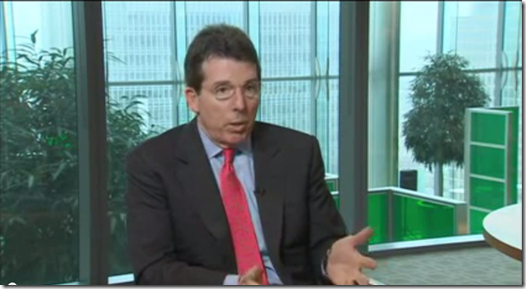When A Reporter Knows Too Much
I know, that title sounds ominous, like something you might find in a Joe Pesci movie or Mario Puzo novel. But that gloomy tone is appropriate for today’s article, which focuses on what to do when a reporter knows factual information that you simply can’t confirm.
For this week’s question of the week, I asked the following:
“What do you do when a reporter knows true information about your company or organization – but you’re unable to confirm it?
Perhaps the journalist has heard about an upcoming merger or major staff change. Maybe somebody tipped the reporter off to an impending legal settlement or a confidential deal struck between two rival parties. Or possibly somebody inside your organization leaked an internal document to the reporter.
But for many reasons, you’re unable to confirm the information – doing so might scuttle the deal, breach a confidentiality agreement, or undercut the media announcement you’ve been planning for months.”
I heard from a few of you about this off-line but not on-line (there’s still time to comment below!). Since I’ve had to deal with this situation before, here are four of my suggestions:
1. Determine Your Priority: Ask yourself what really is most important – maintaining the confidential information, or maintaining a positive, open relationship with the journalist. That’s not always an easy answer, but it’s worth contemplating before considering one of the next three options.
2. Negotiate: In some cases, you may be able to negotiate the timing of the story by offering the reporter something in return, such as access to the main players or key details.
I’ve used this tactic numerous times before, and it often works well. Reporters are often willing to engage in this kind of horse trading since it benefits both parties – they get a more complete story as an exclusive, and you get to control the timing so it doesn’t undermine confidential work.
3. Beat The Reporter: Beat the reporter to the finish line by releasing the story before the reporter can. Although that may mean rushing your timing and settling for a less-than-ideal media strategy, it also may allow you to get the story out on your own terms.
This works especially well for controversial topics, when a reporter’s version of events might be decidedly negative. Your version of events will almost always be kinder than that of an investigative reporter’s, and you can occasionally help influence the day one storyline by offering the story to other journalists first. But beware: If you do this with an influential journalist, you’re probably going to be punished for it in future coverage.
4. Determine Reporter’s Ability to Verify The Story: In some cases, the reporter cannot run the story without your confirmation. Try to analyze the quality of the reporter’s source. If the reporter is unlikely to be able to run the story without your participation, you don’t need to comment. Instead, you can simply “comment without commenting.”
In addition, analyze whether the reporter has a key fact wrong. Even if the reporter has the story 90 percent right, you can truthfully say something such as, “I can’t confirm your story, because discussing any ongoing negotiations can compromise a deal. What I can tell you is you don’t have your facts quite right, and you will publish incorrect information if you go with the story as you have it.”
I’d caution you not to be too cute here – if the reporter has a totally inconsequential fact wrong, you’ll lose credibility if you use this approach. And to be sure, this is a risky tactic. You may be in trouble if you guess wrong and the story is published without your participation. But media relations firms occasionally consider this tactic since it works well in specific cases, and it’s worthy of your consideration in extreme circumstances.
Related: Why There’s No Such Thing As An “Official” Interview
Related: Should You Ask Reporters For Their Questions Before an Interview?


This is a really tricky topic, especially if the information the reporter has is true but your stakeholders are not yet aware of it. For example, the reporter may heard you are about to have a round of layoffs but you haven’t had a chance to inform the affected staff yet. I think this is where you have a great opportunity to negotiate for time to tell the people who will be affected.
I would be extremely cautious using the “beat the reporter” approach. Clearly there are times you may need to get out in front of a story, you just need to make sure that beating the reporter doesn’t become part of the story. This recently happened to the organizing committee for the Vancouver Olympics.
Rob,
I completely agree with your caution on the “beat the reporter” approach. I often wrestle on this blog with whether I should discuss tactics that are fraught with potential peril. In the end, I tend to believe it’s usually better to describe all of the potential tools available to a spokesperson, even if the tool should be deployed only in rare circumstances.
I’m not sure I know much about what happened to the organizing committee for the Vancouver Olympics. Can you tell us more about that?
Thanks again,
Brad
Thanks Brad,
You may recall just before the opening of the Olympics a Georgian luger died of injuries he sustained during a practice run. Recently the CBC investigative program the Fifth Estate obtained internal VANOC emails regarding the safety of the luge track through an access to information request. In one of the emails the head of the games tells his senior staff he received concerns from the designer of the track about the speeds.
Before the Fifth Estate could go to air, the same information was provided to two of the host broadcasters – CTV and the Globe and Mail. The hope from VANOC’s communications person was to provide a more balanced view.
The tactic itself became the focus of a number of stories, not just on CBC but in other media outlets like the Toronto Star which has the largest circulation in Canada and the Vancouver Sun.
Gord McIntosh did a good analysis about it for Metro http://www.metronews.ca/toronto/blog/post/773845.
Rob
Rob – I really appreciate you leaving that link. I just read the story, and advise other readers to check it out as well.
To be sure, it’s a risky strategy. In this case, it seems to have backfired, but I’m still not sure that VANOC’s person made a bad decision. Her range of options seems to have spanned from “really bad” to “REALLY bad,” and I can hardly fault her for releasing news sooner than it otherwise would have been released.
I suspect others will disagree with my conclusion, and that’s understandable: I’m not sure there’s a clearcut answer on this one. I’m eager to hear what other readers think!
Thanks again,
Brad
I love the fact that you (Brad) provide a detailed analysis. It is really helpful to know all your options and why you should or should not implement each. It also prompts others to speak from his or her experience providing additional invaluable knowledge. Please keep it detailed and thank you for sharing your expertise!
Jamie,
Thank you for your nice words! I’m glad that you appreciate the range of options, even if some of them should rarely be implemented. Thanks for your loyal readership!
Brad